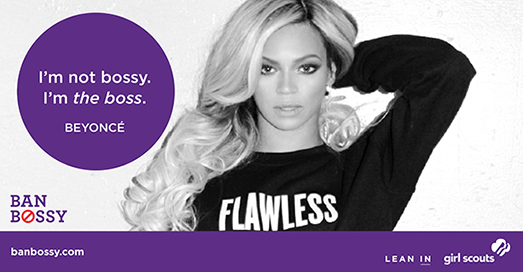Column: Ban Bossy is already a success
Sheryl Sandberg’s “Ban Bossy” campaign has recently been received with much criticism.
Some complain that banning a word will not work, others believe the feminist community has bigger fish to fry, and still more lament that their four-year-old daughter micromanaging her little brother is not embracing leadership, but is indeed acting bossy.
But the campaign will work; in fact, it already has.
The purpose of “Ban Bossy” is, contrary to popular belief, not to literally eradicate the word “bossy” from the English language.
“Ban Bossy” is just a sound bite. “Think About What Words You Use To Describe Girls When They Exhibit Leadership Qualities Because You Might Unintentionally Discourage Them From Aspiring To Become Leaders” is a little long to slap on billboards.
Already, the campaign has people thinking. And perhaps part of the reason people are so quick to criticize the movement is because it has made them a bit uncomfortable with themselves.
In our progressive generation, nobody wants to believe they are a sexist.
But truthfully, many of us use words like bossy and pushy to label self-assured little girls at a much higher rate than boys.
And when those girls get older, “bossy” transforms into a different five-letter word that starts with a B.
Female politicians are routinely harassed in the media for being confident, so it is no surprise that women hesitate to run for office.
According to the Inter-Parliamentary Union, only one country in the world, Rwanda, has more women than men serving in their federal legislature. The United States is particularly dismal, ranking 83rd for percentage of women in Congress, behind countries like Afghanistan and Iraq.
So while the campaign to ban bossy may seem excessive, thinking before you speak is always a wise idea, and it just might make the world a better place.
The views expressed in this column are solely those of the author, and do not represent the views of The Wooster Blade as a whole.





